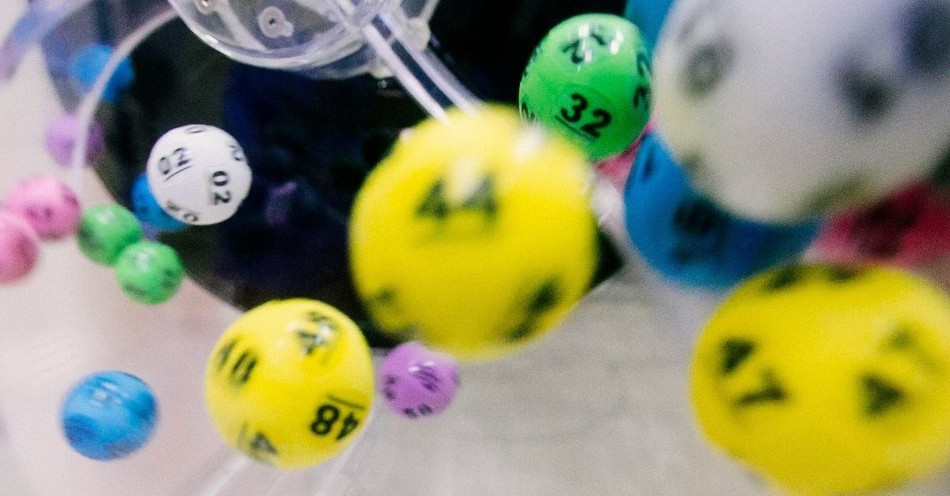Many social commentators throughout my life have accused our current American or Western culture of being a "microwave culture." As the cultural nickname suggests, because we are so used to our food cooking in a microwave (or maybe "air fryer" or "insta-pot" these days) in just a couple minutes as opposed to the hours it might take over a flame or coals like previous generations, the average person today seems to want their money, health, love, fitness, and success immediately.
And while it is true that previous generations were much more accustomed to waiting for months, years, or even decades for these important goals to be achieved, our "microwave," instant-gratification mindset did not happen overnight. In fact, it is not only the result of advancements in cooking technology, but marketers and salespeople have pushed it for a long time. You probably could quote several popular slogans from companies that have conditioned us to want things immediately, such as "your way, right away," "it's my money and I want it now," and "same day service." It is common today to hear about diet pills that will help you shed weight while you sleep and financial choices that will set you up for life.
This impatience has bled over into our desire or expectation for financial success and wealth. Minimum wages have been raised, new types of investments have been created, employees regularly hop from job to job, big lawsuits have become normal, and winning the lottery has become a common phrase and dream for many people. Stop by any convenience store or watch TV for any length of time, and you will be prompted to buy a ticket for some kind of lottery because you'll have a chance to win some life-changing jackpot of money. I remember flying into Las Vegas airport to see a family member a few years ago and being amazed at how many people were playing slot machines in the airport terminal because they could not wait long enough to get to the casino down the street.
As an outcome of our instant-gratification culture, we have idolized the "big win" and the "overnight success" that the lottery is supposed to bring. Record-breaking jackpots are in the news, and "Powerball tickets" are bought by millions of people across our country, by Christians and non-Christians alike, hoping for instant wealth. And speaking of Christians, I have even heard people in the Church say that they weren't certain if playing the lottery was right, but they would go ahead and play because they promised God they would give 10% of what they won to their church!
So, is playing the lottery just lighthearted fun and entertainment, or is it exploiting the poor who think they have the most to gain from a jackpot? Is it simply feeding our innate greed, and is it eroding healthy and biblical views of money and work? And is there a difference between buying a lottery ticket and a raffle ticket or gambling on a football game? Or what about playing a card game for money or buying your spot in a Fantasy Football League that promises $100 if you win?
These questions point to the tensions we feel between our personal freedom in Christ, our responsibility to others in society, and righteousness displayed in our actions and attitudes about wealth.
While the Bible doesn't explicitly tell us anything as obvious as "thou shalt not play the lottery" or "buying lottery tickets is sinful," it gives us enough wise counsel and life principles to follow, which will answer the question for us.
But first, we need to realize that "gambling" isn't the primary problem.
As crazy as that sounds, it might help to know that I used to think about this idea of gambling a lot when I was a child because of how I would regularly hear about the evils of playing poker and going to casinos (which both, come to find out, are ways that a lot of people waste a lot of their hard-earned money).
According to one dictionary, a "gamble" is something you do that is risky and doesn't have a certain outcome. While playing the lottery is gambling, so is anything that stakes success on chance and risk of failure, such as stock-trading, starting a business, and buying a raffle ticket at a business fundraiser. In fact, I remember hearing someone say many years ago, "Every day is a gamble; if you wake up in the mornin' you're a winner!"
Sometimes gambling pays off, but sometimes it doesn't: that's the risk. There are even some examples in Scripture of God's people "casting lots" (similar to throwing dice) to make a decision. Now, they weren't out anything if the "lots" landed differently, but they were still basing their decision on chance—similar to how we might play rock, paper, scissors, or flip a coin today.
So if gambling isn't necessarily the problem, what is? The problem is in our hearts.
If your motivation behind playing a game, investing in a business venture, or supporting a fundraiser is to get yourself out of actually working, then you are lazy. If you are gambling in order to be wealthy enough to buy whatever your heart desires, then you are greedy. If you desire to win the lottery so you can buy stuff to look like someone who is rich, then you are covetous or prideful.
I remember playing poker for loose change one time in college with some roommates. After about an hour of playing, I realized that I had to stop because of the greed that was welling up inside of me and how much I was trying to get away with cheating to win a handful of nickels and dimes (which actually was pretty big money for a poor college student)!
So if gambling results in laziness, greed, covetousness, and pride, then we need to stop, repent, and put it behind us because it is leading to actions and attitudes that are clearly sinful (according to passages like Romans 1, Romans 12, and Colossians 3).
Instead, the Bible regularly teaches us about the value of hard work, especially in verses like Proverbs 12:11 (ESV), which reads: "Whoever works his land will have plenty of bread, but he who follows worthless pursuits lacks sense." The Bible also teaches us that it is better to trust in the Lord and not lean on our own understanding or thoughts of life (Proverbs 3:5).
How we invest our time, money, and energy actually shows us where our heart is. As Jesus said in Matthew 6:21, wherever our treasure is, that is where our heart is. Ironically (or at least counter-culturally), Jesus also taught that giving away our money to help others and do good is a display of generosity. Jesus even said that it was good for Mary Magdalene in John 11 and Luke 7 to "waste" (how Judas thought about it) precious, expensive ointment on Jesus's feet because it displayed her faith, devotion, and worship.

Not only is the problem more about our hearts than gambling, but it is similarly more about our stewardship of what God has given us. Many people and families end up in poverty or keep themselves poor because they chase instant gratification or want to get rich quickly by playing the lottery or making other financial decisions. Not everything we invest in is wise stewardship. In fact, some things (such as vehicles I have discovered) are horrible investments and will never return what we put into them.
But this goes back to our hearts as well because the absolute best investment for our money (as well as our time and talent) is the eternal kingdom of God. Whatever money, energy, or skill we put into the work of God will always give us good returns. We might see those returns in this life, and we might not. But either way, we are promised that those rewards will never be eaten by moths, tarnished by rust, or stolen by thieves (Matthew 6:19-20).
So before we buy a lottery or raffle ticket, before we put some money down on a horse race or a football game, and before we put money into a stock trade or business venture, we need to be honest about whether the investment of our time and money is coming from sins of greed, laziness, and pride, and we need to ask whether it is a wise use of the money that we worked hard to make.
If it is not, then clearly God would not want us to do it. Our holiness, good stewardship, and right relationship with God are more important than the chance of winning a little bit of cash (which is going to get heavily taxed and we will end up wasting anyway). We will "win" so much more, and our souls will be so much more "rich" from choosing hard work, contentment, and trust in God over any instant gratification and "jackpot."
Photo Credit: ©Unsplash/dylan nolte



.jpg)

